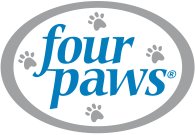Senior Dog Incontinence: Why It Happens and How to Support Your Aging Pet
As dogs get older, it's natural for their bodies—and sometimes their behavior—to change. Muscle weakness, joint discomfort, and age-related medical conditions can all impact how your senior dog moves, thinks, and reacts.
If you’ve experienced your old dog peeing in the house, it’s not misbehavior, but simply a common part of the aging process. While it can be frustrating at first, there are practical and compassionate ways to manage dog incontinence and keep your elderly furry friend comfortable throughout their golden years.
Common Causes of Dog Incontinence in Older Dogs
Senior dog incontinence can be caused by a variety of factors from natural aging to underlying health conditions. Understanding the root cause is the first step in supporting your older dog and keeping your home clean.
Incontinence Due to the Aging Process
As dogs age, they go through natural changes that can impact their ability to control their bladder. Muscle loss, including the muscles that support the bladder, can make it harder for senior dogs to “hold it” like they used to. Older female dogs may develop incontinence due to decreased estrogen levels, which play a role in maintaining dog bladder control.
Many elderly dogs also experience mobility and joint issues such as arthritis, hip dysplasia, or general joint stiffness. If it's painful or difficult for your dog to get up or move quickly, they may not be able to make it outside in time.

Incontinence Due to Medical Conditions
Several medical conditions that are more common in older dogs can affect senior dog bladder control. Diseases like diabetes, Cushing’s, or kidney disease can increase thirst and lead to more frequent urination. In other cases, urinary tract infections or bladder stones may directly interfere with bladder function.
Cognitive decline in aging dogs is another concern. Seniors may develop canine cognitive dysfunction syndrome (similar to dementia in humans), which can cause confusion and disorientation. Your dog might forget where to go, how to signal you, or even that peeing is something they're supposed to do outside.
Incontinence Due to Behavioral Triggers
Dogs of all ages, including seniors, might urinate due to anxiety or fear, excitement, or submissive behavior. If your dog pees when guests arrive or during loud noises, it might be more about stress than age. However, if this behavior is new, it’s worth discussing with your vet to rule out medical causes.
🐾 Related: My Puppy Pees When Excited…How Can I Stop It?

How to Manage Senior Dog Incontinence
Dealing with an old dog peeing in the house doesn’t have to be overwhelming. With a few thoughtful adjustments, you can make life easier for both of you. Here are some practical tips for managing incontinence at home:
Tip #1: Make Bathroom Breaks More Accessible
If your dog is having trouble getting outside in time, try placing Wee-Wee® Pads in multiple areas of the house. This gives your pup more options when urgency strikes. If your dog has never used pee pads before, don’t worry—you can absolutely potty train an older dog! You can even try grass-scented pads or an indoor Premium Patch Pet Potty to better mimic the feel and smell of the outdoors.
Tip #2: Consider Dog Diapers for More Severe Cases
When accidents happen frequently or your dog is leaking urine while sleeping, dog diapers can be a helpful option. They’re especially useful overnight or during long stretches between potty breaks.
If you’re using diapers, be sure to change them regularly to prevent skin irritation. For dogs that sleep in the same spot every night, a waterproof liner or an absorbent pee pad on their bed can also help keep things clean and comfortable.
Tip #3: Stick to a Consistent Routine
Dogs thrive on routine, and that’s especially true for seniors. Try to stick to a consistent potty schedule throughout the day. Regular bathroom breaks can reduce accidents and help your dog feel more secure knowing when to expect their next trip outside.
Tip #4: Talk to Your Vet
If your senior dog’s incontinence seems sudden or is getting worse, it’s important to consult your veterinarian. Many underlying medical conditions can be treated or managed with the right care. Your vet can help identify the cause and recommend treatments, medications, or lifestyle changes tailored to your older dog’s needs.
Accidents Happen!
Whether it’s using pee pads, adjusting routines, or working with your vet to explore medical options, there are plenty of ways to manage senior dog incontinence while strengthening the bond you share with your aging pup.
Incontinence is one of several challenges that senior dogs may face as they age. But, with a little compassion and a few practical adjustments, you can help your older dog continue to live their best life.









